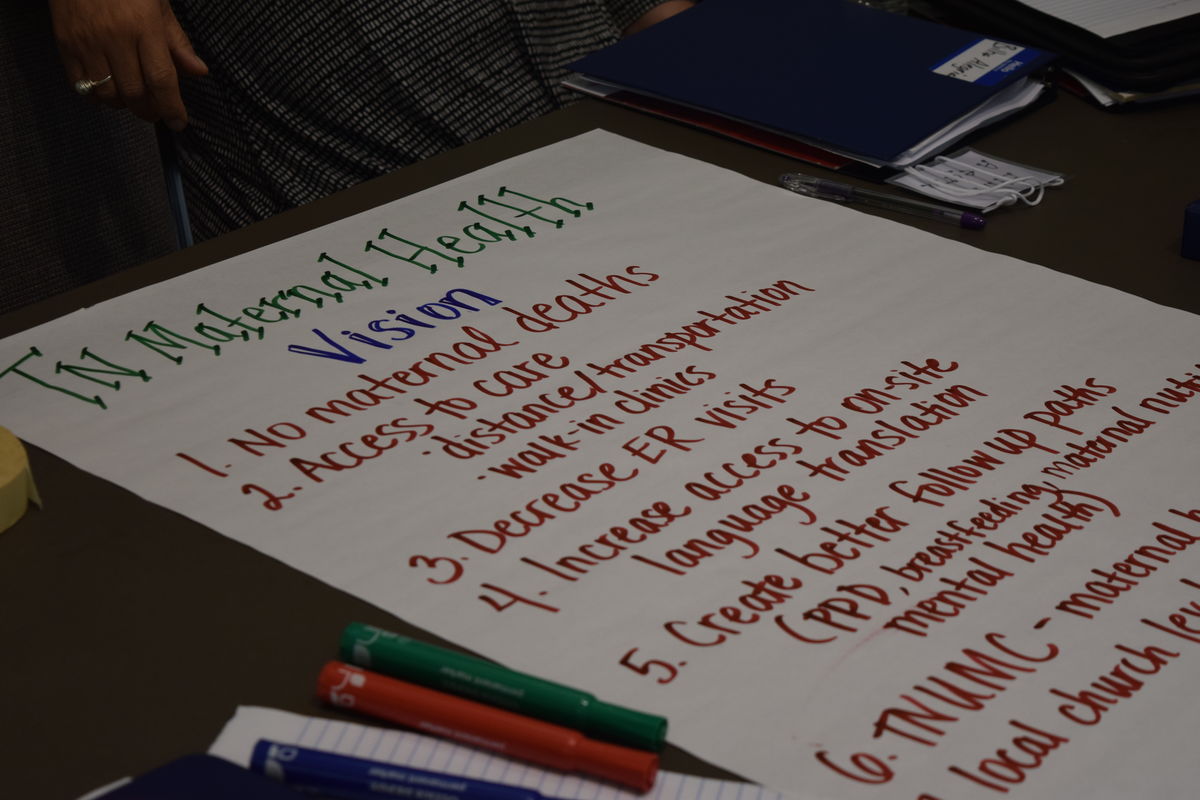United Methodist Maternal Health and Family Planning Advocates Put Their Faith into Action
Church and Society and The United Methodist Women recently hosted a training on maternal health and family planning. It couldn't have come at a more crucial time.

Church and Society and the United Methodist Women recently hosted a training focused on advocacy and grassroots organizing around issues of maternal health and family planning. The participants explored how to use these tools to increase maternal health and child survival, as well as how racism and other forms of oppression intersect with our advocacy work from a faith perspective.
The training could not have come at a more critical time.
Just before the training, President Trump’s administration announced their desire to defund the United Nations Population Fund (UNFPA) and are considering reducing funding to maternal health programs.
The Book of Resolutions calls maternal death “a moral tragedy” and reminds us, “women are crying out for not only their own survival but also the survival of their families and communities. They deserve access to services and care that empower their personal decision-making. As a global church, we are called to eradicate systems of oppression and marginalization that inhibit women’s well-being.” (Book of Resolution, 3203)
Taking away funding for maternal health and denying women access to birth control hinders their well-being, and goes against our values.
[Women] deserve access to services and care that empower their personal decision-making. As a global church, we are called to eradicate systems of oppression and marginalization that inhibit women’s well-being.
United Methodist Book of Resolutions, 3203The Rev. Dr. Anne Gatobu led the group in Bible studies about maternal health and family planning. By using Luke 8:40-56 and John 4:5-29, 39-4, Gatobu brought to life the stories of women in the Bible and how we can apply their stories to maternal health issues today.
(These Bible studies will soon be available on Church and Society’s website. Check back soon!)
Natalia Kanem, UNFPA’s deputy executive director of the and Sarah Craven, director of UNFPA’s Washington, D.C. liaison office, presented on the work of UNFPA. They also showed the impact of defunding UNFPA and reductions in family planning globally (read more here).
Dr. Beth A. Collins Sharp — a veteran nurse and director of the Division of Program Innovation in the Office of Women’s Health at the U.S. Department of Health and Human Services — spoke to the group about the state of maternal health in the U.S.
Following the training, participants expressed confidence in their skills to be better advocates. As one participant said, “I feel prepared to be an advocate for maternal health and international planning.”
And they are putting these skills into action.
Many of the participants joined the Ecumenical Advocacy Days. They educated other EAD participants and went to Capitol Hill in Washington, D.C. to advocate for foreign aid and maternal health funding to members of the U.S. Congress.
Participants are also meeting with their members of Congress outside of EAD. They’re discussing why the U.S. should continue funding maternal health programs and rescind the defunding of UNFPA.
Some participants will be distributing materials on family planning and maternal health at Annual Conferences this summer. Others are planning meetings with their local churches and United Methodist Women chapters. Two will be hosting dinner events for those interested in maternal health.
We’re in the process of building stronger, focused and skilled teams on the grassroots level. If maternal health and family planning interest you, please reach out to Pauline Muchina at pmuchina@umcjustice.org to get involved.